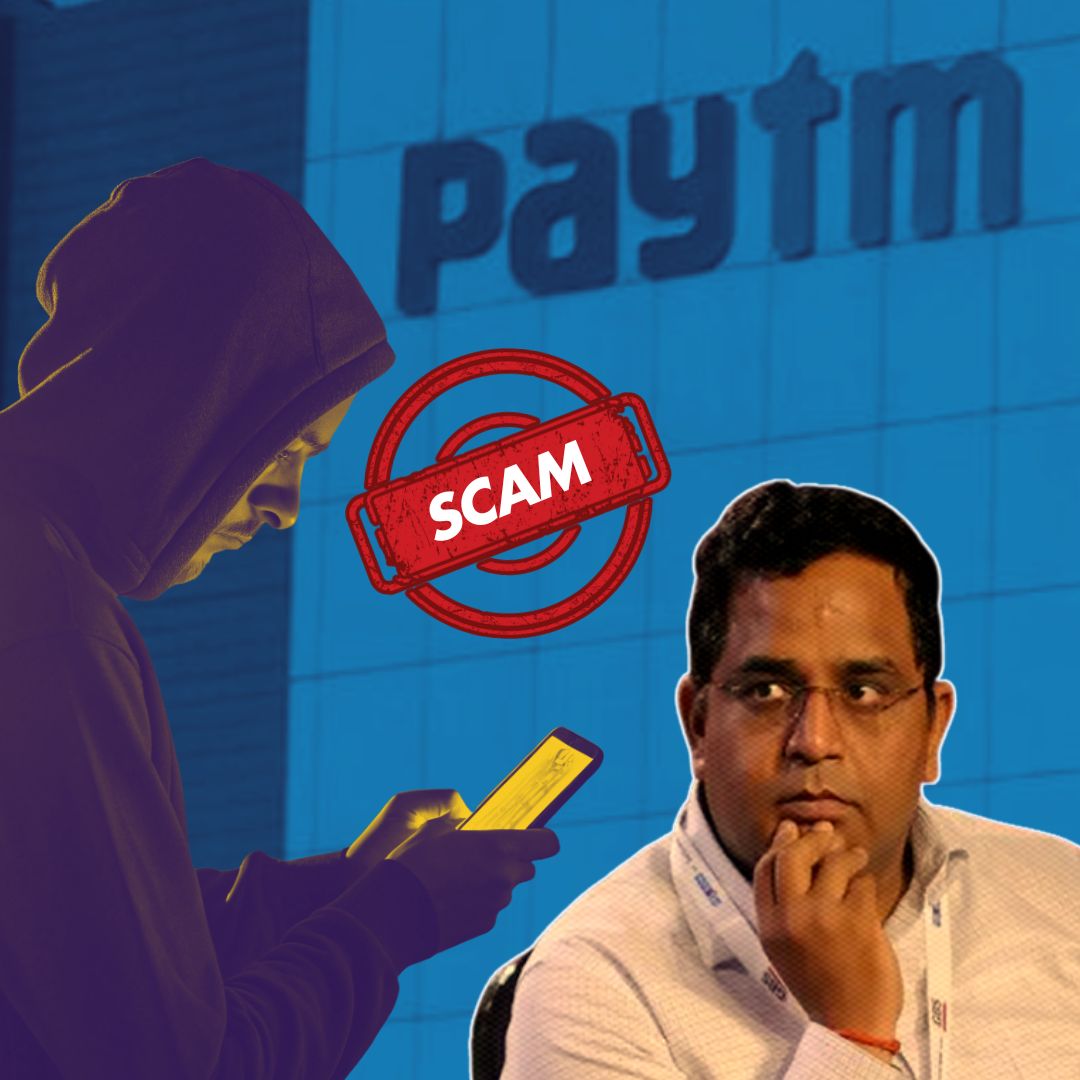Paytm founder and CEO Vijay Shekhar Sharma recently exposed a bizarre and audacious scam attempt where a fraudster impersonated Sharma himself on WhatsApp, trying to extract confidential company information. The scammer used Sharma’s name and profile picture to gain trust and requested details about Paytm’s financial reserves and contact information of the company’s finance head.
Sharma shared the entire conversation on social media, blending humour with caution, which went viral and sparked widespread discussion about the rising threat of digital impersonation.
In light of such incidents, the Department of Telecommunications has introduced the Financial Fraud Risk Indicator (FRI) system to enhance cooperation between banks, UPI providers, and financial institutions to better detect and prevent financial scams.
A Scammer’s Bold Move and Sharma’s Witty Response
The scammer’s approach was unusual and brazen—posing as Vijay Shekhar Sharma himself, he initiated contact with the real Sharma on WhatsApp, requesting him to save a “new” phone number.
The impersonator then asked probing questions about Paytm’s available funds and sought the contact details of the company’s finance head, even attempting to send a potentially malicious .exe file disguised as a GST document.
Instead of falling prey, Sharma responded with humour and sarcasm, jokingly asking if the impersonator deserved a salary hike and engaging in a light-hearted exchange that quickly caught the attention of social media users. His witty handling not only entertained but also highlighted the sophisticated and shameless tactics scammers employ to trick even the most vigilant individuals.
Impersonating myself to me 🥸 pic.twitter.com/OtT63fKZU1
— Vijay Shekhar Sharma (@vijayshekhar) May 21, 2025
The Growing Menace of Cyber Impersonation and Financial Fraud
This incident is not isolated. Cyber fraud, particularly through digital impersonation, has surged in recent years, targeting individuals and companies alike. For instance, a Navi Mumbai-based company recently lost ₹75 lakh after an employee responded to a WhatsApp message impersonating senior management, leading to a fraudulent transaction.
Cybercrime units have since registered FIRs and urged organisations to implement strict verification protocols for financial requests.
Recognising the gravity of such threats, the Department of Telecommunications has launched the Financial Fraud Risk Indicator (FRI), a cutting-edge platform that facilitates real-time intelligence sharing among banks, UPI providers, and other financial entities. This initiative aims to detect suspicious transactions early and prevent financial losses on a large scale.
The Logical Indian’s Perspective
While Vijay Shekhar Sharma’s humorous take on the scam brought much-needed levity to a serious issue, it also underscores the urgent need for heightened digital awareness and proactive cyber safety measures.
Cybercriminals are becoming increasingly inventive and relentless, exploiting trust and technology to deceive their targets. The Logical Indian advocates for a collective approach—encouraging individuals, businesses, and government agencies to prioritise digital literacy, adopt robust security practices, and foster a culture of verification and caution.
We believe that empathy and education are key to creating a safer online environment where technology empowers rather than endangers us. How can we, as a society, strengthen our digital defences and support one another in combating the growing menace of online fraud?
https://t.co/v5WIrZ4mNl https://t.co/PvsBCK8kFj
— Vijay Shekhar Sharma (@vijayshekhar) May 21, 2025










